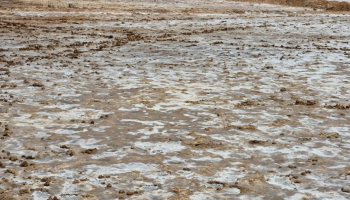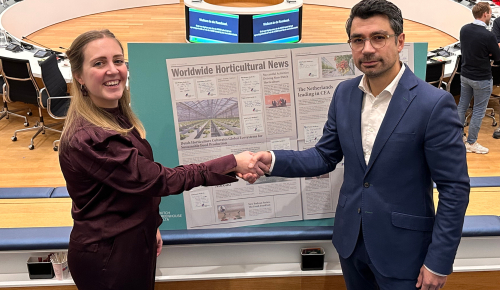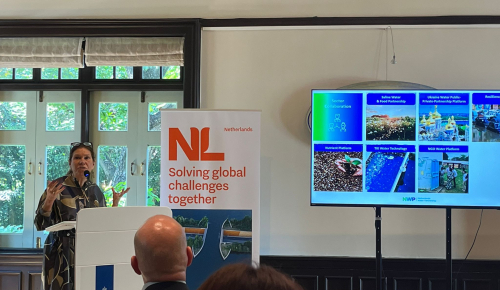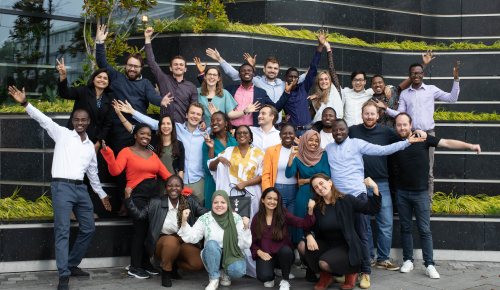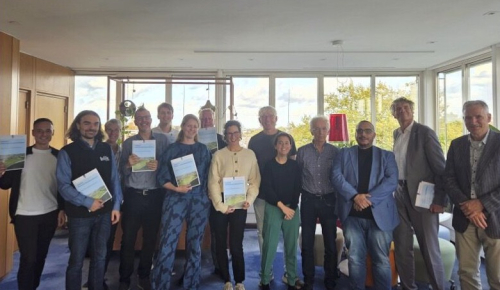News
23 December 2024Update on seed money projects tackling salinity
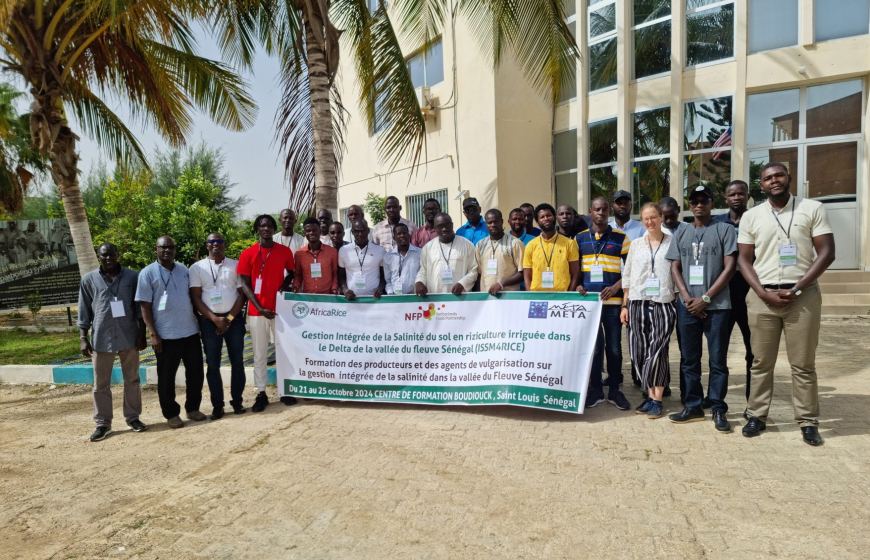

In July, the Saline Water & Food Systems Partnership launched a call for proposals to support Seed Money projects addressing salinity challenges. After careful selection, three impactful projects were chosen in Senegal, Mozambique, and Bangladesh. The project consortia were asked to present their initial findings by the end of 2024. These are highlighted in this update.
Seed Money project in Bangladesh: exploring indigenous practices for salinity adaptation
The Resilient Roots: ‘Leveraging Indigenous Practices for Salinity Adaptation’ project led by the Centre of People and Environment, the Free University of Amsterdam (VU), and Krisoker Sor (Farmers’ Voice), focuses on the role of Indigenous knowledge in adapting agricultural systems to salinity challenges in Bangladesh’s coastal regions.
Salinity gravely threatens agricultural production and people’s livelihoods along Bangladesh's coastal regions, especially in the Southwest Delta. Approximately 1.5 million hectares of arable land are affected by salinity, be it through saline soil, tidal salinity intrusion, coastal disasters such as typhoons, or reduced fresh water supply from upstream regions.
The project targets three regions in the Southwest Delta that face salinity and environmental threats such as cyclones, storm surges, tidal inundation, and waterlogging. Farming communities have identified response strategies based on indigenous practices and inventiveness.
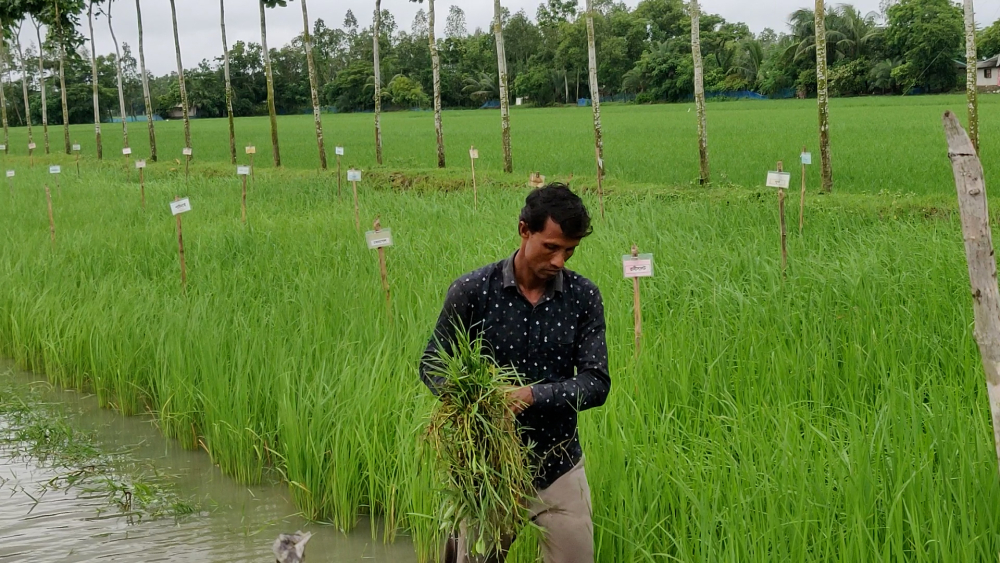
Initial results
Using a participatory, evidence-based approach, including local fieldwork and assessments, the research team has documented numerous Indigenous practices that help mitigate salinity, including the following.
Indigenous agricultural technologies
Dhap Krishi: Floating bed farming.
Ghor Krishi: Raised bed cultivation.
Seed preservation technology
Gobre Bij: Seed preservation using dried manure.
Food and seed preservation technology
Gola: An earthen pot used for storing paddy and rice.
Medha: Seed preservation and germination using water hyacinths.
Kulhar: Earthenware is a traditional method of food storage.
Irrigation and water conservation technology
Jolpotti: An earthen pitcher with holes and ribbon/rope, acting as an irrigation system.
Kuni: Rainwater harvesting and water preservation ponds for dry season irrigation.
Soil health management
Dhibi: Dhibi is a method that utilises mustard husk, known as 'Khoil,' to reduce soil salinity.
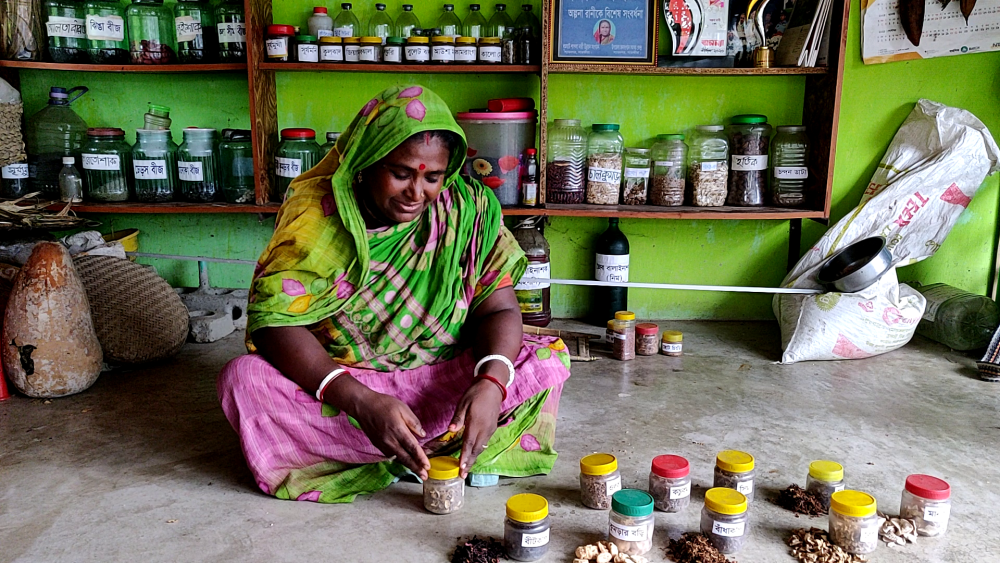
Underutilised practices
These practices, though valuable, are underutilised in broader intervention programmes.
The project aims to bridge this gap by documenting these techniques, promoting them in other regions, and advocating for inclusion in national policies.
Watch a short project documentary via this link.
The project presentation slides are available here.
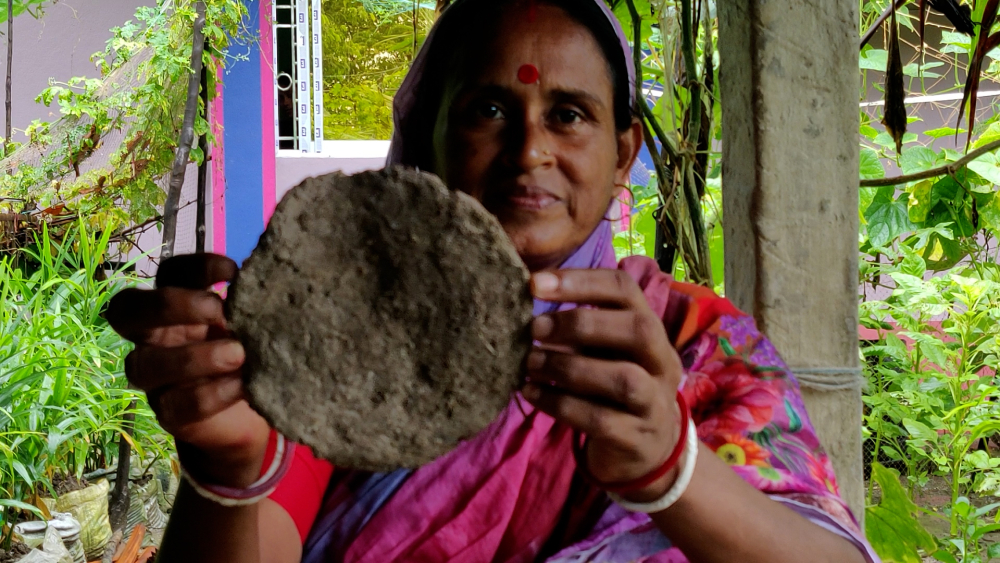
Seed money project in Mozambique: agroforestry solutions and training concept development
The MoSARP (Mozambican Saline Agriculture Research and Practice) project focuses on developing agroforestry solutions and capacity building for educational institutions in response to salinity issues in Mozambique. The wider Eastern and Southern African region faces severe agricultural challenges because of soil and water salinisation. Given its long coastline, the effects of salinity are particularly severe in Mozambique, and excessive land clearance is exacerbating land degradation.
While initial responses brought forward by isolated pilot projects include improved soil and water management and the application of salt-tolerant crops, there is a pressing need for more comprehensive solutions harnessing the whole spectrum of agroecological management solutions. In addition, there is a void in terms of educational activities and materials on salinity management in general and agroforestry solutions in particular.
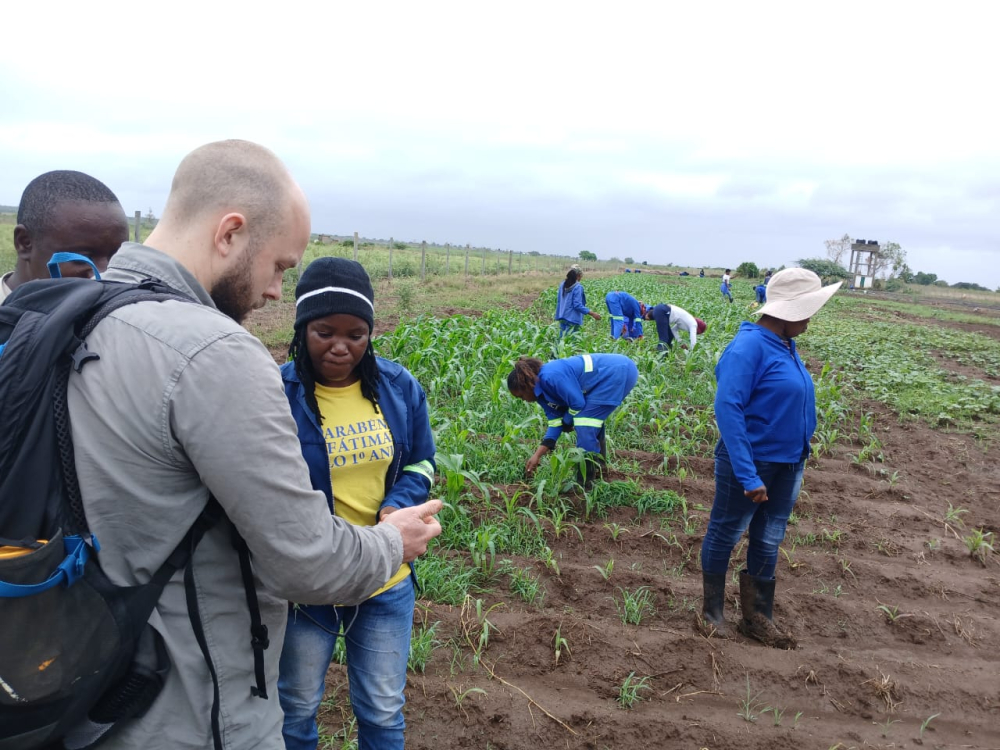
Initial results
MoSARP is embedded in the endeavours of the Eastern and Southern African (ESA) Saline Agriculture Network, facilitated by Weltweit e.V. and the Action Network Worldwide Platform. The project relies on a large consortium that includes ASSAMBA, ABIODES, University Eduardo Mondlane, Mozambique Institute of Agricultural Research, Weltweit e.V., The Salt Doctors, and the Free University of Amsterdam. The team has identified two salt-affected case study sites: Moamba (an inland location) and Marracuene (near the coast). They have also started working on a syllabus to provide academic, applied, and online training on agricultural and agroforestry solutions for salinity management. In September, an online webinar was held as the first step in bringing together agroforestry and salinity experts to exchange ideas and plan the next steps.
On-site field training has been postponed to early 2025 because of societal tensions following recent elections in Mozambique.
For more information about the ESA Saline Agriculture Network, visit their website.
The project presentation slides are available here.
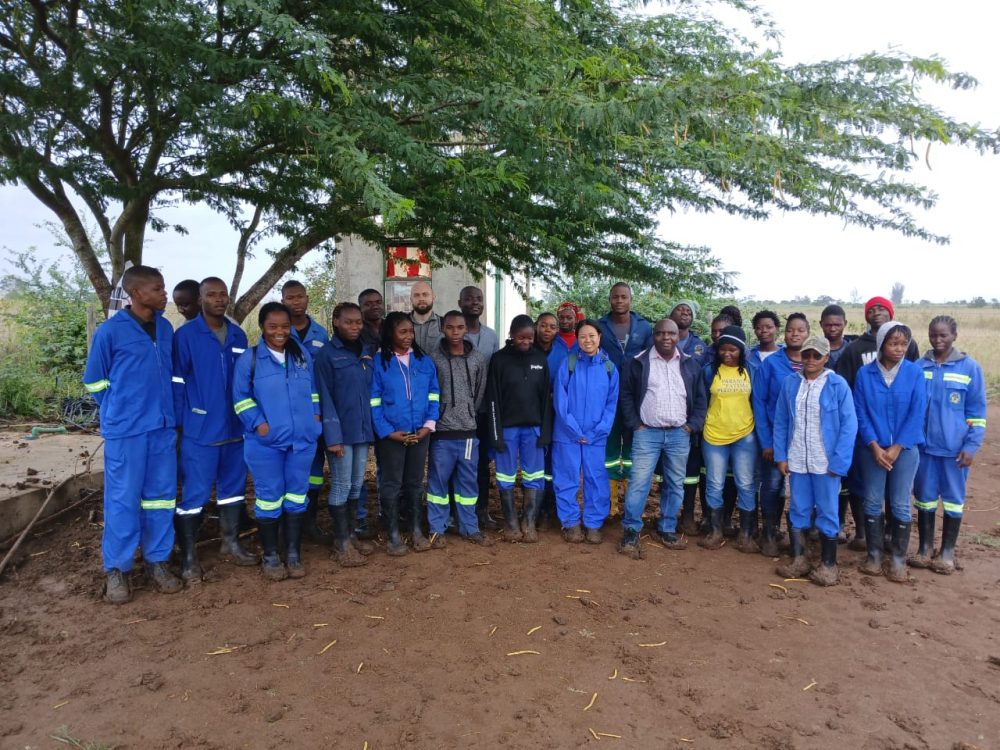
Seed money project in Senegal: integrated soil management for rice-based cropping systems
Soil salinisation, the most prevalent form of soil degradation in the Senegal River Valley (SRV), severely limits rice yields. This undermines agricultural productivity, devalues land, and threatens Senegal's food sovereignty.
Africa Rice Center (AfricaRice) and MetaMeta are implementing this six-month project on integrated soil salinity management in rice-based cropping systems in the Senegal River Valley.
The project includes demonstrations of integrated salinity management options through Farmer Field Schools, knowledge co-creation, and capacity-strengthening sessions.
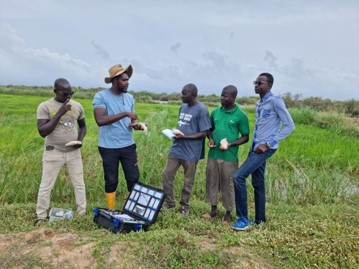
Initial results
Farmers' Field Schools were established in four villages (Ndiaye, Thilène, Ngao, and Mboundoum) to set up pilot tests evaluating the effects of different nutrient management treatments on two salt-tolerant rice varieties. Regular field visits were done to engage with farmers. The visits enabled them to visualise the performance of the crops at certain growth stages under the different treatments, conduct discussions on complementary salinity management practices, and raise awareness.
A blog was created in both English and French to introduce the project and pre-announce upcoming knowledge products, including a set of informative flyers on salinity management and strategies to address it effectively. Capacity strengthening involved 25 extension agents and farmers from SRV who took a one week training course. The course entailed a two-day theoretical programme followed by three days of practical field excursions conducted across the Farmer Field School sites.
To further build capacity and raise awareness on the salinity issues addressed in this project, an online webinar will be held. It is currently scheduled for January 2025.
The project presentation is available here.
These projects are laying the groundwork for scaling up their approaches to other regions and are engaging with international partners for potential funding to expand their impact. The final results will be presented in 2025.
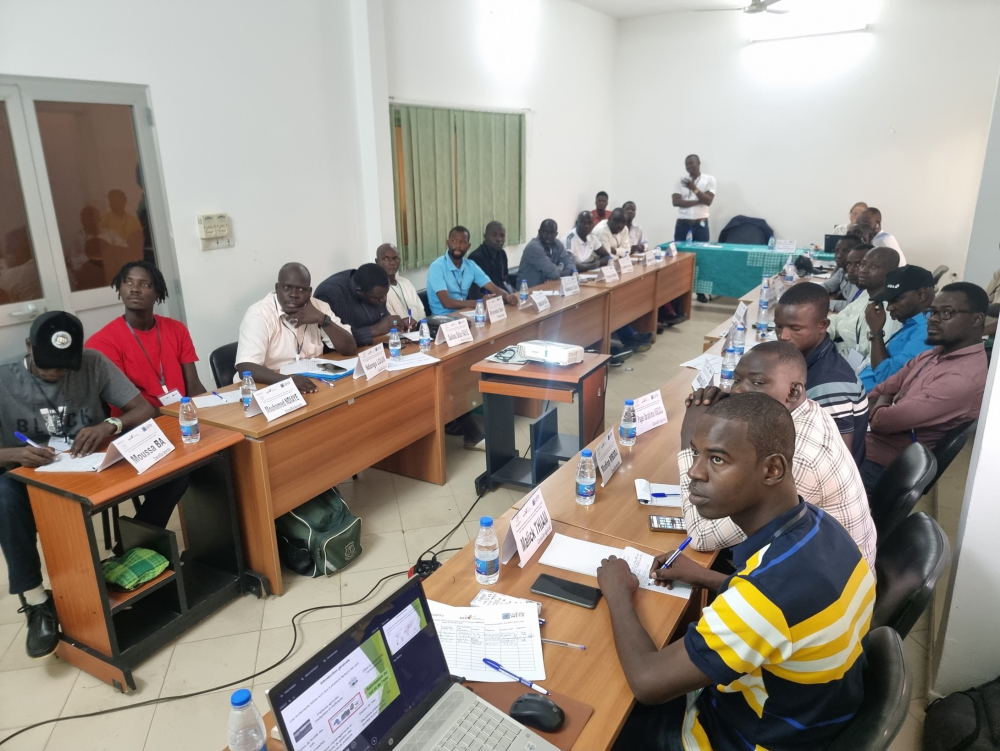
Saline Water & Food Systems
Saline Water & Food Systems (SW&FS) is a multi-stakeholder partnership that stimulates collaboration between the Dutch water and agrifood sectors to address the challenge of salinity in low and middle-income countries (LMICs). The partnership consists of knowledge institutes, diverse members of the business community such as innovative SMEs, and experts operating on the ground. It is supported by the Ministry of Agriculture, Nature, and Food Quality.
Featured NWP partners: Netherlands Food Partnership
